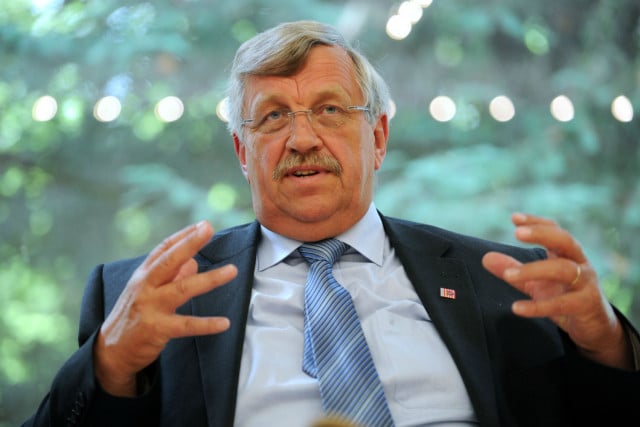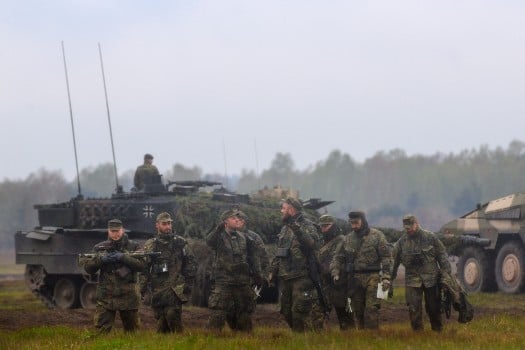The killing of local politician Walter Lübcke, who was shot in the head at his home on June 2nd, sent shockwaves through Germany and raised questions about the country's response to the rising threat of neo-Nazis.
Stephan Ernst, 45, a far-right militant with previous convictions, initially confessed to the murder, but later retracted his confession.
On Wednesday his lawyer Frank Hannig said that Ernst had now revised his account of the crime and told investigators that an accomplice known as Markus H. was responsible for Lübcke's death.
H. was one of two men arrested last year on suspicion of having provided Ernst with the murder weapon – a .38 calibre handgun – but was not previously thought to have been present at the killing.
According to Ernst's new statement on Wednesday, the two men had travelled to Lübcke's house with the intention of giving the politician “a going-over”, but had not planned to kill him, his lawyer said.
Ernst claimed they had argued with Lübcke, and that his accomplice had shot him by accident when the politician stood up to cry for help.
READ ALSO: 'A new strategy': How Germany is stepping up fight against far-right extremism
Hannig said that he considered the new statement to be “a confession”.
He added that his client had only initially confessed to killing Lübcke himself in the hope of receiving financial support for his family.
Pro-refugee
Lübcke was an outspoken defender of Merkel's decision to welcome refugees and in 2015 drew the wrath of right-wing extremists by telling Germans who objected that they could leave the country.
His killing is one of several recent cases which have prompted questions over how the German state combats right-wing extremism.
In October, two people were killed in an attempted anti-Semitic attack on a synagogue in the town of Halle in Eastern Germany.
Several high-profile German politicians have also reported receiving death threats from far-right groups in recent months.
In December, Interior Minister Horst Seehofer announced the creation of 600 new jobs in the police and domestic intelligence agency in order to fight right-wing extremism.
Announcing the new measures, Seehofer said Lübcke's killing was part of an “ugly trail of blood” which far-right terrorists had left in Germany in recent years.



 Please whitelist us to continue reading.
Please whitelist us to continue reading.
Member comments